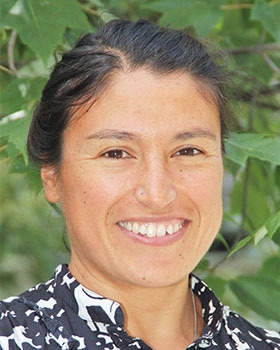Building a Regional Roadmap for Offshore Wind: Northeast States Receive DOE Award
The US Department of Energy’s State Energy Program has awarded $592,683 in competitive funds to New York State Energy and Research Authority (NYSERDA), state organizations in three other Northeast states (the Maine Governor’s Office, the Massachusetts Department of Energy Resources, the Massachusetts Clean Energy Center, and the Rhode Island Office of Energy Resources), and the Clean Energy States Alliance (CESA) to advance offshore wind market development through multi-state cooperation.
The states will develop a regional roadmap detailing actions states can take individually and collaboratively to support offshore wind development at scale. Offshore wind (OSW) can help meet state GHG emission goals and renewable energy targets, while providing multiple other benefits such as grid reliability, peak demand generation, and reduced transmission costs.
NYSERDA is responsible for overall project administration, and the four states will have an equal role and stake in the project and its outcome. The award comes shortly after tides began turning for OSW in the US with the nation’s first offshore wind demonstration project (Deepwater Wind’s 30 MW project) installing US-made foundations off the coast of Rhode Island in July. The announcement also follows this summer’s release of New York’s State Energy Plan as well as New York City’s request for information on options for new renewable energy generation capacity. The state’s offshore wind resources could be used to meet the City’s goal for 100% renewable energy for government operations. Likewise, legislation has been proposed in Massachusetts requiring utilities to conduct periodic joint solicitations for OSW projects at scale. And at the federal level, Senators Tom Carper (D-DE) and Susan Collins (R-ME) have introduced the Incentivizing Offshore Wind Power Act, which, if passed, would provide an investment tax credit for the first 3000 MW of OSW.
Despite the tremendous potential of offshore wind, its high cost is a major barrier to development. Although no offshore wind farms have yet been completed in U.S. waters, the European experience has demonstrated that a market of sufficient scale and duration can reduce costs. Europe has installed over 8 GW and costs have decreased dramatically. A recent report by BVG Associates predicts that offshore wind projects in the UK will be cost competitive with new natural gas plants by 2020.
Although the individual states are already taking important steps to advance offshore wind, and will continue to do so, cooperation among them has the potential to speed progress and reduce costs. Through this DOE award for state energy planning through regional collaboration, the four Northeast states and CESA will examine how to bring OSW to scale in the Northeast, quantify cost improvements associated with a pipeline of projects, and identify opportunities for regional collaboration. The final project deliverable will be a regional roadmap detailing the near- and long-term regional market and the individual state actions and collaborative approaches needed to improve the OSW project pipeline beyond “one-off” projects.
The offshore wind project is one of 12 projects selected for funding through the DOE State Energy Program.
***
This blog post was also published in Renewable Energy World.
Published On
September 28, 2015

